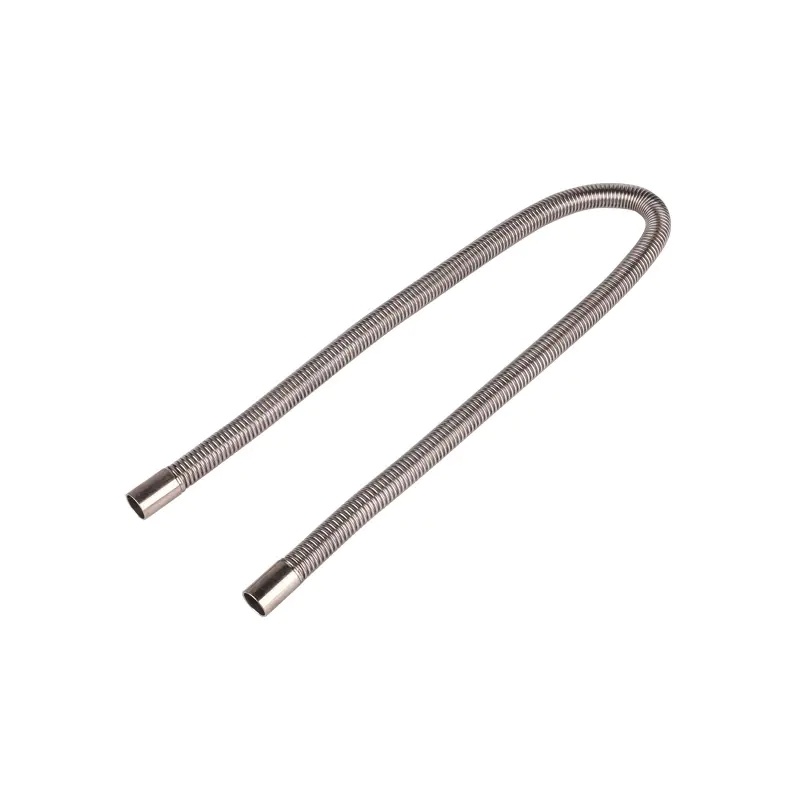News
20
2025
-
06
Why Choose Stainless Steel Metal Hoses for Your Pipeline Needs?
Why Choose Stainless Steel Metal Hoses for Your Pipeline Needs?
In today's industrial landscape, pipeline systems are crucial for transporting fluids, gases, and other materials. When it comes to choosing the right hoses for your pipeline needs, **stainless steel metal hoses** stand out as a superior choice. They offer a combination of **durability**, **flexibility**, and **corrosion resistance** that traditional materials often lack. This article will delve into the many advantages of stainless steel metal hoses, providing you with the information you need to make the best decision for your application.
Table of Contents
1. Understanding Stainless Steel Metal Hoses
2. Key Benefits of Stainless Steel Metal Hoses
2.1. Exceptional Durability and Strength
2.2. Corrosion Resistance for Harsh Environments
2.3. Flexibility and Versatility
2.4. High-Temperature Tolerance
3. Applications of Stainless Steel Metal Hoses
4. Comparing Stainless Steel Metal Hoses with Other Hose Materials
5. Installation and Maintenance of Stainless Steel Metal Hoses
6. Frequently Asked Questions (FAQs)
7. Conclusion
1. Understanding Stainless Steel Metal Hoses
Stainless steel metal hoses are flexible piping components made from high-quality stainless steel. They are designed to handle a variety of applications, from transporting **gases** and **liquids** to accommodating thermal expansion and contraction. The construction of these hoses typically includes an inner core of stainless steel, surrounded by a convoluted or braided design that enhances flexibility and strength.
The use of stainless steel in hose manufacturing is pivotal. The material provides inherent properties that make these hoses ideal for a multitude of industrial settings.
2. Key Benefits of Stainless Steel Metal Hoses
Stainless steel metal hoses offer several significant advantages over traditional hose materials, making them a go-to choice for many industries.
2.1. Exceptional Durability and Strength
One of the primary benefits of stainless steel metal hoses is their **exceptional durability**. Unlike rubber or plastic hoses, stainless steel is resistant to wear and tear, making it a reliable choice for high-stress applications. Its robust construction can withstand extreme pressures and mechanical impacts, ensuring longevity and reduced replacement costs over time.
2.2. Corrosion Resistance for Harsh Environments
Corrosion can be a significant issue in many industrial settings, especially where chemicals or moisture are present. Stainless steel is inherently resistant to rust and corrosion, making it ideal for environments where traditional hoses would fail. This property ensures that your pipeline systems remain operational even in the most challenging conditions, providing peace of mind and reducing maintenance efforts.
2.3. Flexibility and Versatility
Stainless steel metal hoses are designed to be flexible, allowing for easy routing and installation in tight spaces. Their ability to bend and stretch without compromising their integrity makes them perfect for applications where traditional rigid pipes would be impractical. Moreover, they can handle a variety of media types, from liquids to gases, providing versatility across multiple industries.
2.4. High-Temperature Tolerance
Many industrial processes involve high temperatures that can quickly degrade standard hose materials. Stainless steel metal hoses can withstand extreme heat without losing their structural integrity. This high-temperature tolerance makes them suitable for industries such as **oil and gas**, **chemical processing**, and **food production**.
3. Applications of Stainless Steel Metal Hoses
Stainless steel metal hoses are utilized in various industries due to their unique characteristics. Here are some common applications:
- **Chemical Processing**: Their resistance to corrosive chemicals makes them ideal for transporting aggressive media.
- **Food and Beverage**: Stainless steel hoses maintain hygiene and safety standards required in food production and processing.
- **Oil and Gas**: Their high-pressure capabilities and durability are essential for drilling and transportation operations.
- **Pharmaceuticals**: The non-reactive nature of stainless steel is crucial for maintaining product integrity in drug manufacturing.
4. Comparing Stainless Steel Metal Hoses with Other Hose Materials
When choosing the right hose for your pipeline needs, it’s essential to understand how stainless steel metal hoses compare to other materials like rubber, PVC, or polyurethane.
- **Durability**: While rubber hoses can be prone to cracking or wear over time, stainless steel hoses maintain their integrity under pressure.
- **Temperature Resistance**: Rubber and PVC hoses may fail under high temperatures, whereas stainless steel hoses excel in these conditions.
- **Corrosion Resistance**: Traditional materials often succumb to environmental factors, but stainless steel remains unaffected, ensuring a longer lifespan.
5. Installation and Maintenance of Stainless Steel Metal Hoses
Installing stainless steel metal hoses requires careful consideration to ensure optimal performance. Here are some tips:
- **Proper Alignment**: Ensure hoses are aligned correctly to prevent kinking or undue strain.
- **Secure Connections**: Use appropriate fittings and clamps to secure hoses in place, reducing the risk of leaks.
- **Regular Inspection**: Conduct routine checks for wear and tear, especially in high-use areas, to prevent unexpected failures.
Maintenance is generally straightforward but requires attention to detail. Clean the hoses regularly to remove any buildup that could affect performance.
6. Frequently Asked Questions (FAQs)
1. What are the advantages of using stainless steel metal hoses over rubber hoses?
Stainless steel metal hoses offer superior durability, temperature resistance, and corrosion resistance compared to rubber hoses.
2. Can stainless steel metal hoses be used for high-pressure applications?
Yes, they are designed to withstand high pressures, making them ideal for various industrial applications.
3. Are stainless steel metal hoses flexible?
Absolutely! They are designed to be flexible, allowing easy installation in tight spaces.
4. How do I maintain stainless steel metal hoses?
Regularly inspect for wear, ensure proper alignment, and clean to prevent buildup.
5. What industries commonly use stainless steel metal hoses?
They are widely used in industries such as chemical processing, food and beverage, oil and gas, and pharmaceuticals.
7. Conclusion
In summary, **stainless steel metal hoses** are an exceptional choice for pipeline needs due to their durability, corrosion resistance, flexibility, and high-temperature capabilities. By understanding the benefits and applications of these hoses, you can make an informed decision that enhances the efficiency and longevity of your pipeline systems. Investing in stainless steel metal hoses not only ensures reliable performance but also ultimately translates to cost savings and reduced maintenance efforts in the long run. Choose wisely, and let your industrial operations thrive with the unparalleled advantages of stainless steel metal hoses.
stainless steel metal hose


